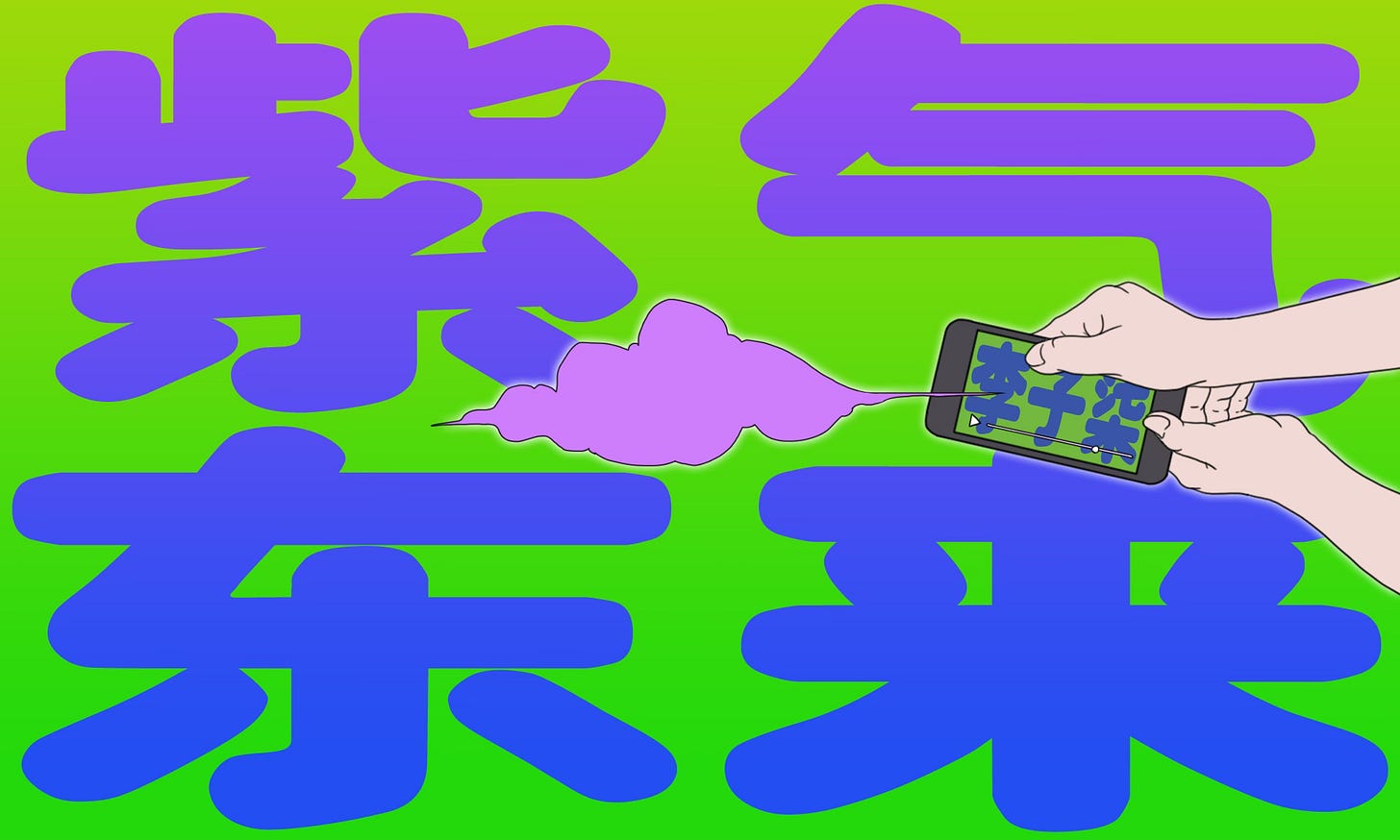"Auspicious signs from the east" — Phrase of the Week
China’s biggest YouTuber returns

Our phrase of the week is: "auspicious signs from the east" (紫气东来 zǐ qì dōng lái)
Context
On November 12, Li Ziqi 李子柒, a Chinese content creator known for her idyllic videos showcasing traditional rural life, made an unexpected comeback.
Famous for having the Chinese language YouTube channel with the biggest following, Li Ziqi released her first video in three years which quickly went viral: within two days, the video amassed over 7 million likes on Douyin, 5 million views on Bilibili, and over 10 million views on YouTube.
Li Ziqi’s absence since 2021 was marked by a legal battle with her former management company, Weinian (微念). By the end of 2022, Li had resolved the dispute, securing 99% ownership of her brand, Sichuan Ziqi Culture Communication Co., Ltd.
Her latest work deviates from her signature "rural culinary" theme, focusing instead on a form of traditional Chinese lacquering. In “My grandma’s wardrobe was broken, so I gave it a makeover” (雕漆隐花,雕出紫气东来), the influencer showcases her meticulous craftsmanship over six months, refurbishing a lacquered wardrobe for her grandmother, adorning its doors with a golden qilin (麒麟), a mythical creature symbolizing good fortune and longevity.
The qilin is not the only symbolism in the video. There is also an idiom in the Chinese title which has more than one meaning, totally lost in the English translation:
“Lacquerware with hidden patterns: bringing auspicious signs from the East”
雕漆隐花,雕出紫气东来
diāo qī yǐn huā, diāo chū zǐ qì dōng lái
And with that, we have our Sinica Phrase of the Week!
What it means
The phrase "auspicious signs from the east" (紫气东来, zǐ qì dōng lái) is a four-character idiom that directly translates as: "purple" (紫 zǐ), which symbolizes nobility and auspiciousness; "energy" (气 qì), referring to an aura often associated with vitality and cosmic force; "east" (东 dōng), representing the direction of renewal and hope; and "to come" (来 lái), indicating the arrival of something positive.
Together, the phrase evokes the imagery of auspicious purple energy, or clouds, rising from the east, signifying the arrival of good fortune or something positive.
In the title of the video, though, there’s an additional layer of meaning based on a play on words. The characters for "purple" (紫 zǐ) and "energy" (气 qì) sound similar to the characters in Li Ziqi’s name (子柒 zǐ qī), creating a clever wordplay that links the idiom to her return.
The idiom originates from the Han Dynasty text, Biographies of Immortals (列仙传 liè xiān zhuàn), which is a compilation of the life stories of 70 mythological and historical immortals (仙 xiān). This text is believed to have been compiled in the 2nd century CE, during the Eastern Han period (25–220 CE).
The idiom appears in the following passage:
"Laozi planned to travel westward.The gatekeeper Yin Xi saw purple qi energy floating over the pass. Indeed, Laozi passed by, riding an ox."
老子西游,关令尹喜望见有紫气浮关,而老子果乘青牛而过也。
Lǎo Zǐ xī yóu, guānlìng Yǐn Xǐ wàng jiàn yǒu zǐ qì fú guān, ér Lǎo Zǐ guǒ chéng qīngniú ér guò yě.
This is referring to Lǎozǐ 老子, a renowned scholar, and author of the Tao Te Ching (道德经), a Chinese classic text and foundational work of Taoism.
Laozi served as an official overseeing literary works during the Zhou Dynasty (1046–256 BCE). Around the age of seventy, during a period of great unrest when feudal lords were warring for power, Laozi foresaw even greater chaos to come so decided to retire. He mounted a black ox and left his home in Luoyang, heading west in search of a peaceful place to live.
As Laozi approached the Hangu Pass (函谷关, Hángǔ Guān) separating the upper Yellow River and Wei valleys, the gatekeeper, Yǐn Xǐ 尹喜, saw purple clouds coming from the east. He believed this was a sign that a sage was about to pass through.
When Laozi arrived, Yin Xi’s prediction was confirmed.
Through the centuries "purple clouds from the east," became a symbol of good fortune. In modern Chinese, this idiom is commonly used to describe an auspicious event.
But in the context of China’s biggest YouTuber, it’s taken on an additional meaning: "Li Ziqi is back."
Andrew Methven is the author of RealTime Mandarin, a resource to help you learn contemporary Chinese in context, and stay on top of the latest language trends in China.
Read more about how this story is being discussed in the Chinese media in this week’s RealTime Mandarin.
From the archive: Read more about Li Ziqi’s legal battle (对簿公堂) with her management company, Weinian.


